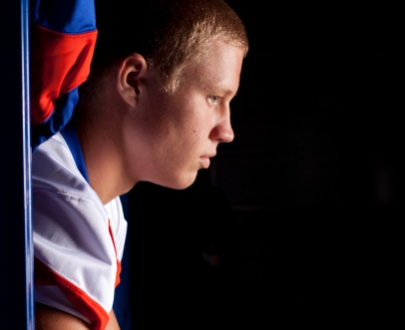 What enables some people to "roll with the punches" when they encounter life challenges, while others find it harder to bounce back?
What enables some people to "roll with the punches" when they encounter life challenges, while others find it harder to bounce back?
Researchers call the ability to thrive in the face of adversity "psychological resilience." While people often assume some kids are just "born with it," research shows that resilience actually develops over time in a complex interplay between a child's personal characteristics and the various environments[1] and supportive adults in their lives[2].
Being resilient does not mean having a problem-free life, quite the opposite, it is being able to cope and even thrive in the face of challenges and accept new opportunities.
The work of Dr. Michael Ungar, founder and co-director of the Resilience Research Centre at Dalhousie University, Nova Scotia, highlights a focus on the social and environmental factors that actually develops well-being under stress. The study of resilience shifts thinking away from the problems children face to shaping environments that make it more likely that children get what they need, when they need it. In the Journal of Child Psychology and Psychiatry (2012), he writes, "resilience is more likely to occur when individuals and groups are successful in navigating to resources that support them and negotiating these to be provided in culturally relevant ways."
There are skills resilient people have.[3] When we know them, we can nurture the development of resilience in anyone and create environments that foster well-being.
1. Resilient people have secure relationships.
"Every child requires someone in his or her life who is absolutely crazy about them." Urie Bronfenbrenner
Relationships with others support resilience when;
- there are secure, attached relationships at home with parents and/or other caregivers
- other adults accept and respect a child
- relationships from the different environments of a child interact, for example when a child's family and school communicate
2. Resilient people self-regulate effectively.
This means resilient people can;
- stay calm under pressure;
- express emotions in a way that helps the situation;
- control impulses;
- delay gratification and
- persevere in the face of adversity.
3. Resilient people empathize.
Resilient people understand and care about the feelings and needs of others. They enjoy a level of optimism that contributes to a willingness to be responsible. They can more easily see others' points of view; this allows them to find effective ways to resolve conflicts and problems.
4. Resilient people have helpful thinking patterns.
Resilient people:
- analyze problems accurately,
- keep positive, without denying reality,
- view mistakes as opportunities to learn and
- believe they can act to solve problems.
Helping children develop their resilience is truly a "gift that will keep on giving" - a gift that will grow a child's capacity to overcome new challenges throughout life.
What is resilience within the social ecology of human development?
Individual characteristics account for less of positive resilient outcomes than do the influences of environmental factors.
A social-ecology theory of resilience provides a deeper understanding of positive child development under stress.
From Risk to Resilience: Final Report for the Canadian Council on Learning
"Resilience does not simply reside in a child; it is born through a process involving a child's characteristics and the dynamic involvement in relationships." Dr. Kim Schonert-Reichl
The Resilience Factor by Karen Reivich an Andrew Shatte
Resilience is a crucial ingredient to a happy, healthy life and a skill that can be practiced and taught.
A guide to promoting resilience in children: strengthening the human spirit
Children draw on three sources of resilience when overcoming adversity: I Have (being loved and respected), I Am (self-esteem) and I Can (communication and problem solving skills).